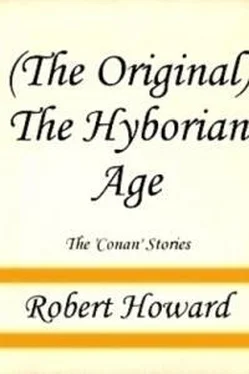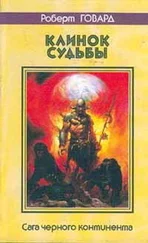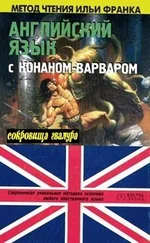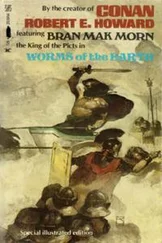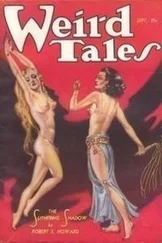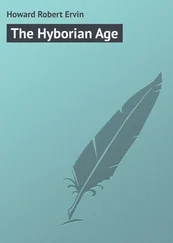The Picts had benefited by contact with Hyborian civilization, but they had always fiercely resisted that contact. That is to say, they had learned to work crudely in copper and tin, which were found scantily in their country, and for which latter metal they raided into the mountains of Zingara, or traded hides, whale's teeth, walrus tusks and such few things as savages have to trade. They no longer lived in caves and tree–shelters, but built tents of hides, and crude huts, copied from those of the Bossonians. They still lived mainly by the chase, since their wilds swarmed with game of all sorts, and the rivers and sea with fish, but they had learned how to plant grain, which they did sketchily, preferring to steal it from their neighbors the Bossonians and Zingarans. They dwelt in clans which were generally at feud with each other, and their simple customs were blood–thirsty and utterly inexplicable to a civilized man, such as Arus of Nemedia. They had no direct contact with the Hyborians, since the Bossonians acted as a buffer between them. But Arus maintained that they were capable of progress, and events proved the truth of his assertion—though scarcely in the way he meant.
Arus was fortunate in being thrown in with a chief of more than usual intelligence—Gorm by name. Gorm cannot be explained, any more than Genghis Khan, Othman, Attila, or any of those individuals, who, born in naked lands among untutored barbarians, yet possess the instinct for conquest and empire–building. In a sort of bastard–Bossonian, the priest made the chief understand his purpose, and though extremely puzzled, Gorm gave him permission to remain among his tribe unbutchered—a case unique in the history of the race. Having learned the language Arus set himself to work to eliminate the more unpleasant phases of Pictish life—such as human sacrifice, blood–feud, and the burning alive of captives. He harangued Gorm at length, whom he found to be an interested, if unresponsive listener. Imagination reconstructs the scene—the black–haired chief, in his tiger–skins and necklace of human teeth, squatting on the dirt floor of the wattle hut, listening intently to the eloquence of the priest, who probably sat on a carven, skin–covered block of mahogany provided in his honor—clad in the silken robes of a Nemedian priest, gesturing with his slender white hands as he expounded the eternal rights and justices which were the truths of Mitra. Doubtless he pointed with repugnance at the rows of skulls which adorned the walls of the hut and urged Gorm to forgive his enemies instead of putting their bleached remnants to such use. Arus was the highest product of an innately artistic race, refined by centuries of civilization; Gorm had behind him a heritage of a hundred thousand years of screaming savagery—the pad of the tiger was in his stealthy step, the grip of the gorilla in his black–nailed hands, the fire that burns in a leopard's eyes burned in his.
Arus was a practical man. He appealed to the savage's sense of material gain; he pointed out the power and splendor of the Hyborian kingdoms, as an example of the power of Mitra, whose teachings and works had lifted them up to their high places. And he spoke of cities, and fertile plains, marble walls and iron chariots, jeweled towers, and horsemen in their glittering armor riding to battle. And Gorm, with the unerring instinct of the barbarian, passed over his words regarding gods and their teachings, and fixed on the material powers thus vividly described. There in that mud–floored wattle hut, with the silk–robed priest on the mahogany block, and the dark–skinned chief crouching in his tiger–hides, was laid the foundations of empire.
As has been said, Arus was a practical man. He dwelt among the Picts and found much that an intelligent man could do to aid humanity, even when that humanity was cloaked in tiger–skins and wore necklaces of human teeth. Like all priests of Mitra, he was instructed in many things. He found that there were vast deposits of iron ore in the Pictish hills, and he taught the natives to mine, smelt and work it into implements—agricultural implements, as he fondly believed. He instituted other reforms, but these were the most important things he did: he instilled in Gorm a desire to see the civilized lands of the world; he taught the Picts how to work in iron; and he established contact between them and the civilized world. At the chiefs request he conducted him and some of his warriors through the Bossonian marches, where the honest villagers stared in amazement, into the glittering outer world.
Arus no doubt thought that he was making converts right and left, because the Picts listened to him, and refrained from smiting him with their copper axes. But the Pict was little calculated to seriously regard teachings which bade him forgive his enemy and abandon the warpath for the ways of honest drudgery. It has been said that he lacked artistic sense; his whole nature led to war and slaughter. When the priest talked of the glories of the civilized nations, his dark–skinned listeners were intent, not on the ideals of his religion, but on the loot which he unconsciously described in the narration of rich cities and shining lands. When he told how Mitra aided certain kings to overcome their enemies, they paid scant heed to the miracles of Mitra, but they hung on the description of battle–lines, mounted knights, and maneuvers of archers and spearmen. They harkened with keen dark eyes and inscrutable countenances, and they went their ways without comment, and heeded with flattering intentness his instructions as to the working of iron, and kindred arts.
Before his coming they had filched steel weapons and armor from the Bossonians and Zingarans, or had hammered out their own crude arms from copper and bronze. Now a new world opened to them, and the clang of sledges re–echoed throughout the land. And Gorm, by virtue of this new craft, began to assert his dominance over other clans, partly by war, partly by craft and diplomacy, in which latter art he excelled all other barbarians.
Picts now came and went freely into Aquilonia, under safe–conduct, and they returned with more information as to armor–forging and sword–making. More, they entered Aquilonia's mercenary armies, to the unspeakable disgust of the sturdy Bossonians. Aquilonia's kings toyed with the idea of playing the Picts against the Cimmerians, and possibly thus destroying both menaces, but they were too busy with their policies of aggression in the south and east to pay much heed to the vaguely known lands of the west, from which more and more stocky warriors swarmed to take service among the mercenaries.
These warriors, their service completed, went back to their wilderness with good ideas of civilized warfare, and that contempt for civilization which arises from familiarity with it. Drums began to beat in the hills, gathering–fires smoked on the heights, and savage sword–makers hammered their steel on a thousand anvils. By intrigues and forays too numerous and devious to enumerate, Gorm became chief of chiefs, the nearest approach to a king the Picts had had in thousands of years. He had waited long; he was past middle age. But now he moved against the frontiers, not in trade, but in war.
Arus saw his mistake too late; he had not touched the soul of the pagan, in which lurked the hard fierceness of all the ages. His persuasive eloquence had not caused a ripple in the Pictish conscience. Gorm wore a corselet of silvered mail now, instead of the tiger–skin, but underneath he was unchanged—the everlasting barbarian, unmoved by theology or philosophy, his instincts fixed unerringly on rapine and plunder.
The Picts burst on the Bossonian frontiers with fire and sword, not clad in tiger–skins and brandishing copper axes as of yore, but in scale–mail, wielding weapons of keen steel. As for Arus, he was brained by a drunken Pict, while making a last effort to undo the work he had unwittingly done. Gorm was not without gratitude; he caused the skull of the slayer to be set on the top of the priest's cairn. And it is one of the grim ironies of the universe that the stones which covered Arus's body should have been adorned with that last touch of barbarity—above a man to whom violence and blood–vengeance were revolting.
Читать дальше
